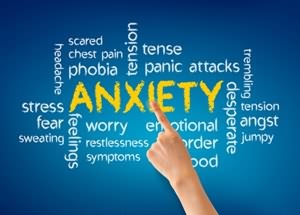Anxiety disorders are commonly treated with various classes of medications aimed at reducing symptoms and improving daily functioning. However, determining the “best” mental health drugs for anxiety treatment can vary based on individual response, the type and severity of anxiety, and potential side effects.
Anxiety medications
Here’s an in-depth exploration of some commonly prescribed medications for anxiety disorders, along with their pros and cons and we also show you the best place where to buy anxiety medications online at a reliable online pharmacy for a guaranteed low price:
Selective Serotonin Reuptake Inhibitors (SSRIs):
Examples of SSRI medications:
Pros of SSRI drugs:
- Efficacy: Generally effective in reducing anxiety symptoms by increasing serotonin levels in the brain.
- Broad Applicability: Used to treat various anxiety disorders like generalized anxiety disorder (GAD), social anxiety disorder, and panic disorder.
- Fewer Side Effects: Compared to older antidepressants, SSRIs often cause fewer side effects.
Cons of SSRI drugs:
- Initial Side Effects: May cause initial side effects like nausea, headaches, or increased anxiety.
- Sexual Dysfunction: Common side effect impacting libido or arousal.
- Withdrawal Symptoms: Discontinuation may lead to withdrawal effects for some individuals.
Serotonin-Norepinephrine Reuptake Inhibitors (SNRIs):
Examples of SNRI medications:
Pros of SNRI medications:
- Dual Action: Increase levels of both serotonin and norepinephrine, aiding in anxiety reduction.
- Effective for Comorbid Conditions: Useful for treating anxiety along with depression or chronic pain.
- May Improve Energy Levels: Some individuals report increased energy.
Cons of SNRI medications:
- Withdrawal Symptoms: Abrupt discontinuation can cause withdrawal effects.
- Increased Blood Pressure: Potential elevation in blood pressure in some individuals.
- Nausea and Dizziness: Common initial side effects.
Benzodiazepines or Benzos:
Examples of Benzodiazepine medications
- Alprazolam (Xanax)
- Lorazepam (Ativan)
- Clonazepam (Klonopin)
Pros of Benzos:
- Rapid Relief: Provide quick relief for acute anxiety symptoms.
- Muscle Relaxation: Can help alleviate muscle tension associated with anxiety.
- Sedative Effect: Useful for improving sleep in individuals with anxiety-related insomnia.
Cons of Benzos:
- Risk of Dependency: Potential for addiction and tolerance with long-term use.
- Cognitive Impairment: May cause drowsiness, impaired coordination, or memory issues.
- Withdrawal Symptoms: Discontinuation can lead to rebound anxiety or withdrawal effects.
Buspirone (Buspar):
Pros of Buspirone medication:
- Non-Sedating: Does not typically cause sedation or cognitive impairment.
- Minimal Risk of Dependency: Lower risk of addiction compared to benzodiazepines.
- No Withdrawal Symptoms: No significant withdrawal effects upon discontinuation.
Cons of Buspirone:
- Delayed Onset: Takes several weeks to reach full therapeutic effect.
- Less Efficacious: May not be as effective for severe or acute anxiety.
- Minimal Side Effects: Some individuals may experience mild dizziness or nausea.

Conclusion:
Determining the best mental health drug for anxiety treatment involves considering various factors, including the type and severity of anxiety, individual response, and potential side effects. SSRIs and SNRIs are often preferred as first-line treatments due to their efficacy and tolerability, while benzodiazepines are effective for short-term relief but come with a risk of dependency. Buspirone offers a non-sedating alternative with minimal risk of dependency but may be less effective for severe anxiety.
The choice of medication should be made in consultation with a healthcare professional, considering the individual’s unique circumstances and preferences. Additionally, a comprehensive treatment plan may include therapy, lifestyle modifications, and regular monitoring to optimize mental health outcomes while minimizing potential side effects and risks associated with medication use.